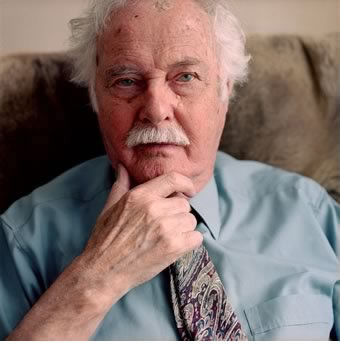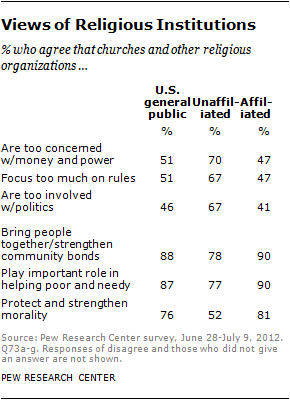End of the line for the ‘Railway Man,’ why gays can’t march in Anoka, pills for performance in school, ‘and no religion, too,’ and a day in the life of the Minnesota mental health system.
1) END OF THE LINE FOR “THE RAILWAY MAN”
This is the face of forgiveness.

Eric Lomax has died. He searched for his World War II tormentor, and then forgave him.
Says the AP:
Lomax was a British army officer when he was captured by Japanese forces as they overran Singapore in 1942. Lomax endured horrific conditions as he and thousands of others were put to work building the infamous Burma to Siam railroad.
Lomax endured years of suppressed rage at the torture he suffered at the hands of his Japanese captors, but when he tracked his interrogator down, it set the stage for a dramatic act of forgiveness which formed the heart of his celebrated 1996 memoir, “The Railway Man.
“Sometimes, the hating has to stop,” he wrote for the Forgiveness Project…
The meeting took place in 1998 in Kanburi, Thailand. When we met Nagase greeted me with a formal bow. I took his hand and said in Japanese, “Good Morning Mr Nagase, how are you?” He was trembling and crying, and he said over and over again: “I am so sorry, so very sorry.” I had come with no sympathy for this man, and yet Nagase, through his complete humility, turned this around. In the days that followed we spent a lot of time together, talking and laughing. It transpired that we had much in common. We promised to keep in touch and have remained friends ever since.
“Eric spoke for thousands of men who felt their service and sacrifice had gone unnoticed,” the film’s producer told the BBC. It will be released next year.
2) WHY GAYS CAN’T MARCH IN ANOKA
Justin’s Gift, an organization set up to help LGBT youth in Anoka after Justin Aaberg took his own life because of anti-gay bullying, has apparently been denied permission to take part in Anoka’s Halloween parade. The organization says they’ve been told the reason is there are already too many people walking.
Anoka has had more than its share of attention from the national media on gay issues in the last year and a person starting a petition to get the parade committee to change its mind sees a connection here.
Rebecca Krone, a special education teacher at Anoka Middle School, writes in her news release:
Anoka is the city that made national news for its school policies that discriminated against gay youth. Anoka is in the heart of the communities were four suicides occurred of teens that were presumed to be or were identified as gay/lesbian. Anoka is the town featured in the heartbreaking Rolling Stone article “One Town’s War On Gay Teens.”
Anoka also happens to be the Halloween Capital of the World and each year they host a huge Halloween Parade, which thousands and thousands of people attend. The families of Justin’s Gift hoped 2012 would be their FIRST of these youth walks. Justin’s Gift was hoping they would be able to walk as an organization but these hopes were lost when they were denied because the parade committee simply said there were already too many groups walking. I guess there just wasn’t room for these 30 kids?
Justin’s Gift was an organization born out of tragedy. It was created by Tammy Aaberg whose gay son Justin was continually bullied and once even sexually assaulted, while attending Anoka High. Justin tragically committed suicide. Justin’s Gift is an Anoka based organization that provides empowering programs and events for LGBT youth and their ally friends. The youth of the organization chose the theme “Favorite Fairy Tale Characters” and submitted their application on time and were still denied. The decision to deny these youth seems unfair and insensitive considering what they have suffered through over the last number of years in the community. According to the Anoka Halloween website, the parade and festival were founded on the idea of showcasing Anoka youth and community, therefore it seems a rather illogical decision then to bump this Anoka based youth organization over groups not from Anoka and groups not focused on youth.
The other issues that cause me to question the validity and fairness of their decision, is that no where on the application form or website does it state that there is a limit to the number of walkers in the parade as a whole nor does it say that the applications are filled on a first come first serve basis. The guidelines only state that there is a max per group and an application deadline – Justin’s Gift easily met both these guidelines.
Though this may all seem trivial to an outsider but it meant a lot to these kids to be able to walk as a group and celebrate who they are and that they are part of a positive organization that is working to make every kid feel safe and loved for who they are. Participating in this parade is a way to help this committee start to heal. The Anoka Halloween Parade committee has simply sent the wrong message to LGBT youth and everyone outside of Anoka.
I have messages into the parade committee for a reaction. So far, messages have not been returned.
Should pills be given to children to boost their academic performance?
The New York Times today says medication usually given for attention disorder is being given to kids with poor academic performance, even though they don’t suffer from the disorder.
“I don’t have a whole lot of choice,” a pediatrician in a poor Georgia county says. “We’ve decided as a society that it’s too expensive to modify the kid’s environment. So we have to modify the kid.”
If you don’t like the idea, the supporters suggest, invest more into the education of low-income kids.
A study out today says Protestants are now in the minority in the United States, but another finding may be much more significant: More people are turning away from religion. It doesn’t necessarily mean they don’t believe in a spiritual being of some sort, it’s just that they don’t want — or need — the organized religion to make it so.
Two-thirds of them say they believe in God (68%). More than half say they often feel a deep connection with nature and the earth (58%), while more than a third classify themselves as “spiritual” but not “religious” (37%), and one-in-five (21%) say they pray every day. In addition, most religiously unaffiliated Americans think that churches and other religious institutions benefit society by strengthening community bonds and aiding the poor.
With few exceptions, though, the unaffiliated say they are not looking for a religion that would be right for them. Overwhelmingly, they think that religious organizations are too concerned with money and power, too focused on rules and too involved in politics.

Not even close to being related: Moses parted the Red Sea at last month’s homecoming game in Stillwater, returning with the homecoming queen.
(h/t: Secrets of the City)
5) A DAY IN THE LIFE OF THE MINNESOTA MENTAL HEALTH SYSTEM
Don’t turn away from the story in Moorhead where a woman fell from an overpass to her death on I-94 below. It may offer the opportunity to look deeper into Minnesota’s mental health system, a Fargo Forum story today suggests. The woman had just been released from a psychiatric facility hours earlier, her family says. Her boyfriend suggests she was nowhere near well enough to be released.
Her most recent struggles came when a doctor took her off antidepressants. And, the story says, many in her family didn’t know of her struggles, even though she’s fought depression since she was a teenager.
Younger sister Julie Garden-Robinson said Garden had dealt with mental health issues since she was 19, relying on medications and occasional hospitalization to get better. But it wasn’t something she talked about with most of her friends and family, especially the residents of Gary, Minn., where they grew up.
“In fact, even my kids didn’t know, so this was just a shocking thing for them,” Garden-Robinson said. “She didn’t want anyone to know that she had depression and anxiety other than the ones she chose to tell, and the fact that this became so public is what is just shocking to me.”
She said her sister was “enormously talented” and, for the most part, kept her mental health struggles in the background.
She received a master’s degree in vocal performance from the University of Texas at Austin, landing roles with an opera company as a soprano and earning a spot as a soloist with a symphony while performing in Austin and Dallas.
Since moving to the Fargo-Moorhead community in 1999, she had worked at several public schools in Fargo as a substitute music teacher.
The death has not been ruled a suicide, but the Fargo Forum approach to the story contrasts sharply with the approach of Twin Cities newspapers on the issue. Presumably, there will be more.
Bonus: Filmed this morning at the public boat landing on Rice Lake, south of Remer, MN., the intersection of 64th Ave NE and County Road 4 just northwest of Remer, and Trout Lake south of Bovey, MN.
TODAY’S QUESTION
Rhetoric during this campaign season has often turned to the national debt and the annual budget deficit. Some blame the problem on the generation now nearing retirement, arguing that baby boomers have lived well and irresponsibly at the expense of younger people. Today’s Question: Is it fair to blame the national debt on any particular generation?
WHAT WE’RE DOING
Daily Circuit (9-12 p.m.) – First hour: Kerri’s conversation with world-renowned chef Marcus Samuelsson about his memoir, “Yes, Chef”. He joined the Daily Circuit to discuss food, family, and why he needed to tell his story without any omissions.
Second hour: Getting past trauma, fear, and hangups.
Third hour: Kerri’s conversation with novelist Deni Bechard about his memoir “Cures for Hunger
MPR News Presents (12-1 pm): The 8th District congressional debate, recorded in Duluth this morning. Republican Rep. Chip Cravaack debates his Democratic challenger, Rick Nolan.
Talk of the Nation (1-2 p.m.) – TBA
All Things Considered (3-6:30 p.m.) – Labor unions are spending big in Michigan this campaign season in an attempt to get collective bargaining enshrined in the state’s constitution. And that has businesses fighting back hard. NPR looks at the election year battle between business and unions.
